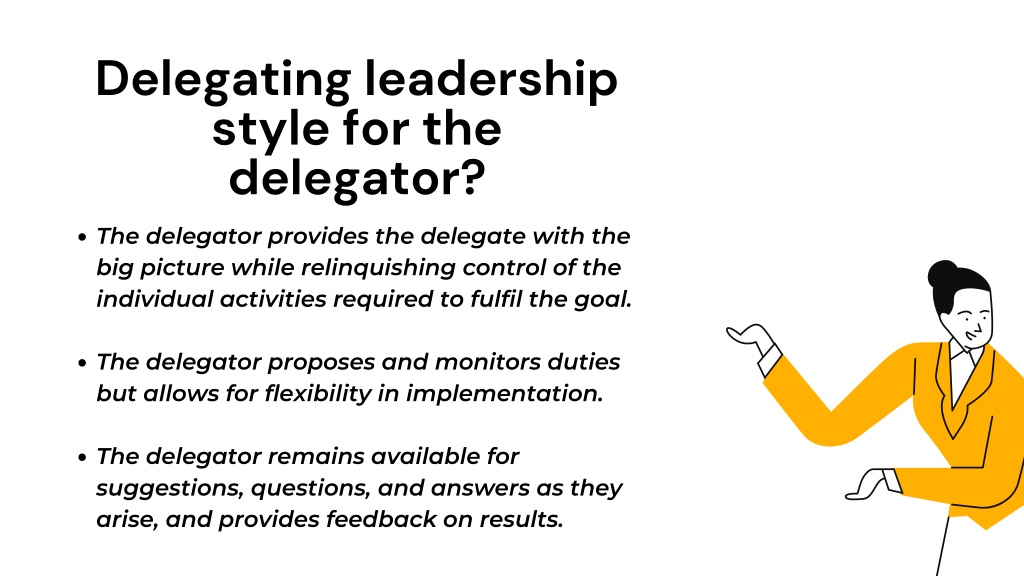A Delegative Style Of Leadership Is Useful

Organizations facing rapid change and complex challenges are increasingly turning to a leadership style that empowers teams and fosters innovation: delegative leadership. Evidence suggests this approach, when implemented correctly, can significantly boost productivity and employee satisfaction.
This article examines the benefits and practical application of delegative leadership, highlighting its crucial role in today's dynamic business environment. It provides a concise overview of its effectiveness and offers insights for leaders seeking to adopt this management style.
What is Delegative Leadership?
Delegative leadership, also known as laissez-faire leadership, involves entrusting decision-making and task execution to team members. Leaders provide resources and support but avoid micromanagement, allowing individuals to take ownership and initiative.
The core principle is that individuals closest to the work are often best equipped to make informed decisions. This fosters a sense of autonomy and responsibility, boosting morale and encouraging creative problem-solving.
The Benefits are Real
Studies consistently demonstrate that delegative leadership enhances employee engagement. A 2023 Gallup poll found that employees who feel empowered at work are more likely to be productive and committed to their organizations.
Specifically, teams operating under a delegative leader demonstrate enhanced problem-solving capabilities. A 2022 study by the Harvard Business Review highlights the role of increased team autonomy and ownership.
Moreover, this style promotes innovation. By removing layers of approval, teams can swiftly test ideas and respond to market changes, allowing them to adapt quickly.
When to Delegate
Delegative leadership isn't a one-size-fits-all solution. Its suitability depends heavily on team competency and the nature of the task.
It works best with highly skilled, experienced, and motivated teams. Clear communication of expectations and goals is critical for success.
For tasks requiring specialized knowledge or those with high levels of uncertainty, delegating to subject matter experts can prove invaluable. It optimizes resource allocation.
How to Delegate Effectively
Effective delegation starts with selecting the right individuals for the task. Trust your team’s abilities.
Clearly define the desired outcome and provide the necessary resources. Regularly check in to offer support and guidance, but avoid interfering excessively.
Give constructive feedback on the outcomes, both positive and negative. Acknowledge that success is built from trial and error. Celebrate successes and learn from failures.
Potential Pitfalls
One of the main risks is a lack of direction or control, particularly with inexperienced teams. This leads to confusion and delays. Regular feedback sessions are essential.
Delegation can lead to inconsistent results if individual team members have drastically different approaches. Standardized processes are crucial.
Additionally, leaders need to ensure that delegation does not become abdication. Leaders must remain accountable for the team's overall performance.
Next Steps
Organizations interested in adopting delegative leadership should prioritize building a culture of trust and empowerment. Invest in training to develop both leaders and team members. Focus on increasing team knowledge and skills.
Ongoing evaluation is crucial to refine the approach and address emerging challenges. Data-driven feedback ensures continued growth and adaptation.
















![A Delegative Style Of Leadership Is Useful What Is Delegative Leadership [And How to Implement It] — Optim Careers](https://images.squarespace-cdn.com/content/v1/5e7a582d35406e67f528c98d/6873994e-ddde-4840-ae35-29bee70a2fc2/Delegative+Leadership.png?format=1000w)

